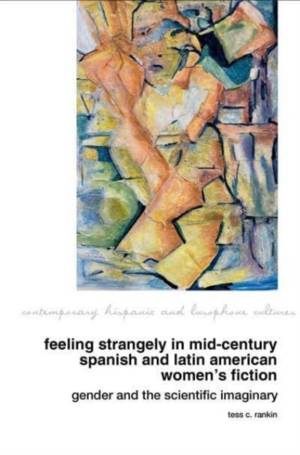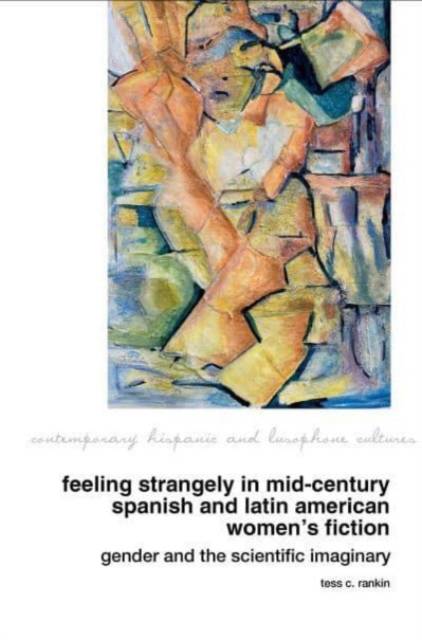
- Retrait gratuit dans votre magasin Club
- 7.000.000 titres dans notre catalogue
- Payer en toute sécurité
- Toujours un magasin près de chez vous
- Retrait gratuit dans votre magasin Club
- 7.000.0000 titres dans notre catalogue
- Payer en toute sécurité
- Toujours un magasin près de chez vous
Feeling Strangely in Mid-Century Spanish and Latin American Women's Fiction
Gender and the Scientific Imaginary
Tess C RankinDescription
An Open Access edition of this book is available on the Liverpool University Press website and the OAPEN library as part of the Opening the Future project with COPIM.
The early twentieth century was awash in revolutionary scientific discourse, and its uptake in the public imaginary through popular scientific writings touched every area of human experience, from politics and governance to social mores and culture. Feeling Strangely argues that these shifting scientific understandings and their integration into Hispanic and Lusophone society reshaped the experience of gender. The book analyzes gender as a felt experience and explores how that experience is shaped by popular scientific discourse by examining the "strange" femininity of young protagonists in four novels written by women in Spanish and Portuguese: Rosa Chacel's Memorias de Leticia Valle (published in Argentina in 1945); Norah Lange's Personas en la sala (Argentina, 1950); Carmen Laforet's Nada (Spain, 1945); and Clarice Lispector's Perto do coração selvagem (Brazil, 1943). It pairs each novel with a broad scientific theme selected from those that captured the contemporary popular imagination to argue that the young female protagonists in these novels all put forth visions of young womanhood as an experience of strangeness. Building on Carmen Martín Gaite's term chicas raras, Rankin proposes this strangeness as constitutive of a gendered experience inextricable from affective and material engagements with the world.
Spécifications
Parties prenantes
- Auteur(s) :
- Editeur:
Contenu
- Nombre de pages :
- 208
- Langue:
- Anglais
- Collection :
- Tome:
- n° 94
Caractéristiques
- EAN:
- 9781837644742
- Date de parution :
- 02-01-24
- Format:
- Livre relié
- Format numérique:
- Genaaid
- Dimensions :
- 156 mm x 234 mm
- Poids :
- 467 g

Les avis
Nous publions uniquement les avis qui respectent les conditions requises. Consultez nos conditions pour les avis.






